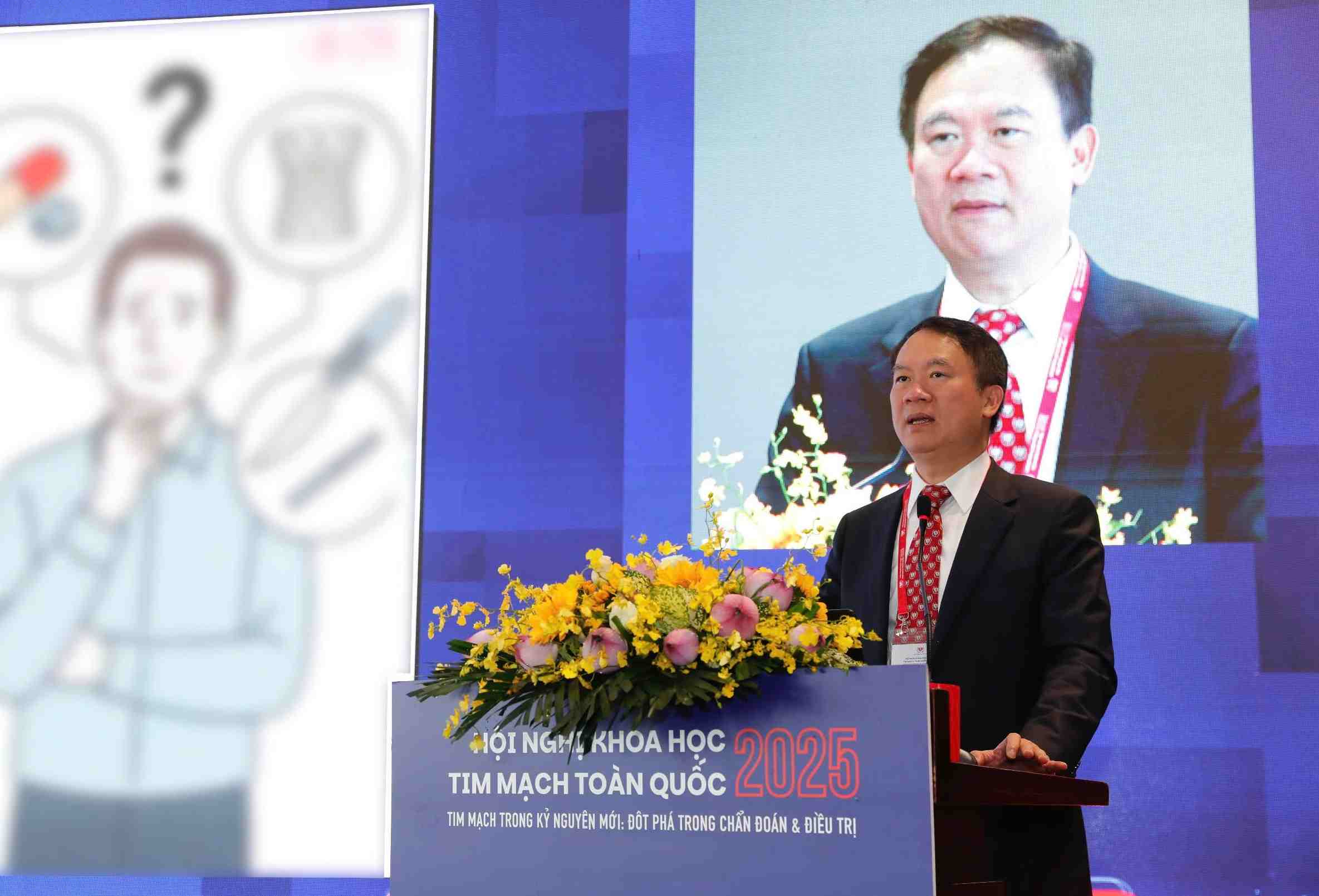Prof. Dr. Pham Manh Hung - Vice President of the Vietnam Cardiology Association - said that cardiovascular patients are at higher risk of complications than normal people when suffering from infections such as flu, pneumonia caused by bronchitis, or lower respiratory infections caused by respiratory thrombosis virus (RSV). Research shows that patients with congestive heart failure are at risk of hospitalization because RSV is 4 to 33 times higher than people without cardiovascular disease. In addition, if there is bronchial pneumonia, the number of new cases of heart failure increases by more than 14%, while myocardial infarction increases by more than 7% compared to normal.
From there, a two-way relationship is formed: Cardiovascular disease increases the risk of infections, while acute infections increase the risk of serious cardiovascular events.

"Preventing infections is a key solution to break this loop, in which vaccination plays an important role. Many cardiovascular associations and infectious diseases associations in countries such as Portugal have also issued recommendations and consensus on infectious disease prevention for cardiovascular patients, emphasizing that the vaccine is a strategic pillar in caring for the elderly and patients with cardiovascular disease" - Prof. Dr. Pham Manh Hung said.
In Vietnam, the Vietnam Cardiology Association has updated the vaccination consensus for infectious diseases in adults with cardiovascular disease or high risk, while promoting training for health workers, community communication and increasing access to vaccines for high-risk groups. The goal is to make vaccination an indispensable part of caring for the health of cardiovascular patients.
Associate Professor, Dr. Duong Thi Hong - Deputy Director of the National Institute of Hygiene and Epidemiology - cited: 86% of patients will agree to be vaccinated against influenza if recommended by a cardiologist.
She emphasized the need for coordination between preventive doctors and treatment doctors, integrating vaccination consultation into the routine medical examination process, especially for adults with underlying diseases.
In terms of practice, Dr. Nguyen Hoang Hai - Director of Gia Dinh People's Hospital - said: To optimize vaccination for adults, doctors need to regularly discuss and clearly advise patients, helping them understand the importance of vaccines. At the same time, guiding patients to get vaccinated according to a simple procedure will help reduce hesitation, protect the elderly from infectious diseases and make vaccination a pillar of medicine not only for cardiovascular patients but also for patients with other underlying diseases.











